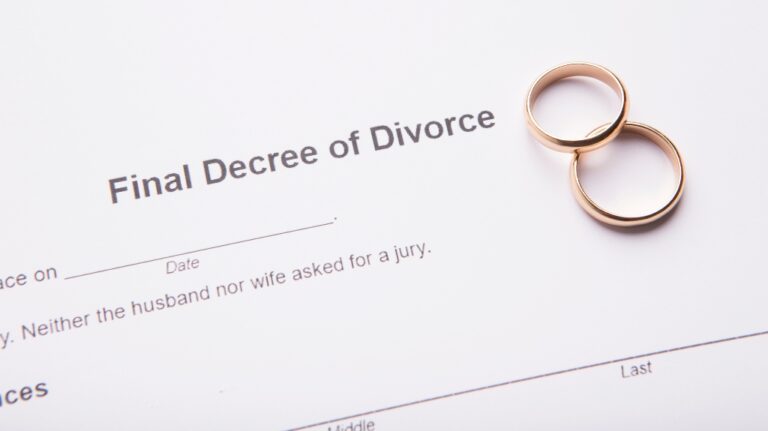Commingled Funds In A California Divorce
When one or both spouses already own property or assets before the marriage, it is important for both spouses to understand California’s community and separate property laws. That way you can help your attorney distinguish between your separate assets and commingled funds that have become part of the community property during the marriage.
Separate vs Community Property in a California Divorce
California law says that any assets, property, or funds that either spouse acquires from the date of the marriage until the date of separation is assumed to be “community property” (sometimes also called “marital property”). Both spouses share equal interests in that property and have the right to control its use, management, or sale. This is a broad category. It includes income resulting from that property (like rent from an investment property or distributions from a small business) and funds accumulated from either spouse’s income, or the sale of community property. Debts, mortgages, and other loans are considered community debts.
Separate property is anything that either spouse owns that doesn’t count as community property. This includes:
- Property owned by one spouse before the marriage
- Gifts or inheritances received during the marriage
- Income or property earned or acquired after the date of separation (except if purchased with community property funds)
- Anything that spouse purchased using funds owned or income earned from separate property sources
In a California divorce, the judge will divide up the community property between the spouses. However, separate property is awarded to the owner spouse, generally without any claim or portion given to the non-owner spouse. It is up to the spouse claiming a separate property interest to prove the assets are truly separate, and defend against claims that it has become “commingled” over the course of the marriage.
Commingled Funds Become Community Property
When one spouse’s separate property gets combined with the other spouse’s separate property or the community property of the family it becomes “commingled” and loses its separate property status, subject to possible tracing. This can happen intentionally or by mistake. Often, an owner spouse does not realize that they have commingled funds until the non-owner spouse tries to claim a portion of their separate property during the couple’s divorce trial. There are many ways commingling marital property can occur:
- Retitling or remortgaging real property in both spouses’ names
- Depositing separate property funds into a joint bank account, investment account, or brokerage account
- Giving separate property to your spouse as a gift
- Purchasing a home in both parties’ names using separate funds as a down payment
- Using community funds to pay off a premarital mortgage or improve a separate property home
- Participating in employer-provided retirement plans or stock options both before and during the marriage
- Spending substantial time during the marriage managing separate property investments
- Operating a separate property business during the marriage, or hiring your spouse to work in your separate property business
- Investing community funds into a separate property business
- Securing a loan with both community and separate property
- Entering into a formal “transmutation agreement” converting separate property to community property
What Happens to Commingled Funds in a California Divorce?
Once you have commingled funds into the community property of your marriage, they lose their separate property status, subject to tracing. That means that the non-owner spouse will have a claim to the commingled funds or property during the divorce. This claim isn’t always for a 50% equity interest.
For example, the “community” may be entitled to reimbursement for community funds used to pay off separate property loans.
The community may also have a claim on the increased value of your separate property resulting from time you spent managing the account or working in the business during the marriage. If you have deposited separate funds into joint accounts, they could lose their separate status altogether, becoming entirely commingled funds to be divided by the court.
How to Avoid Commingling Marital Property
Some California residents feel strongly that the assets they bring into a marriage should remain their own after any later divorce. California law allows parties to sign prenuptial agreements and post-nuptial agreements that specify each spouse’s separate property. These agreements can change the way the California divorce court will evaluate commingled funds, protecting each spouse’s separate property from claims by the other party. If you do not have a written agreement shielding your separate property, it is important to take extra steps to protect against accidentally commingling funds:
- Do not put your spouse’s name on your separate property accounts
- Keep separate accounting records for purchases made with separate funds
- Do not use a separate property house as your primary marital home
- Avoid paying for marital expenses or property with separate funds
- Maintain your separate property assets with separate funds, rather than your salary or income earned during the marriage
California divorce cases involving commingled funds can be complicated. At Roberts & Zatlin Family Law, located in Temecula, California, our family law attorneys can help you evaluate your family’s separate and community property, raise or protect against claims that there are commingled funds, and apply any marital agreements that might change the way the court divides your family’s community property. We invite you to contact us to schedule a free consultation to discuss your separate property claims and commingled property concerns. We look forward to working with you.






